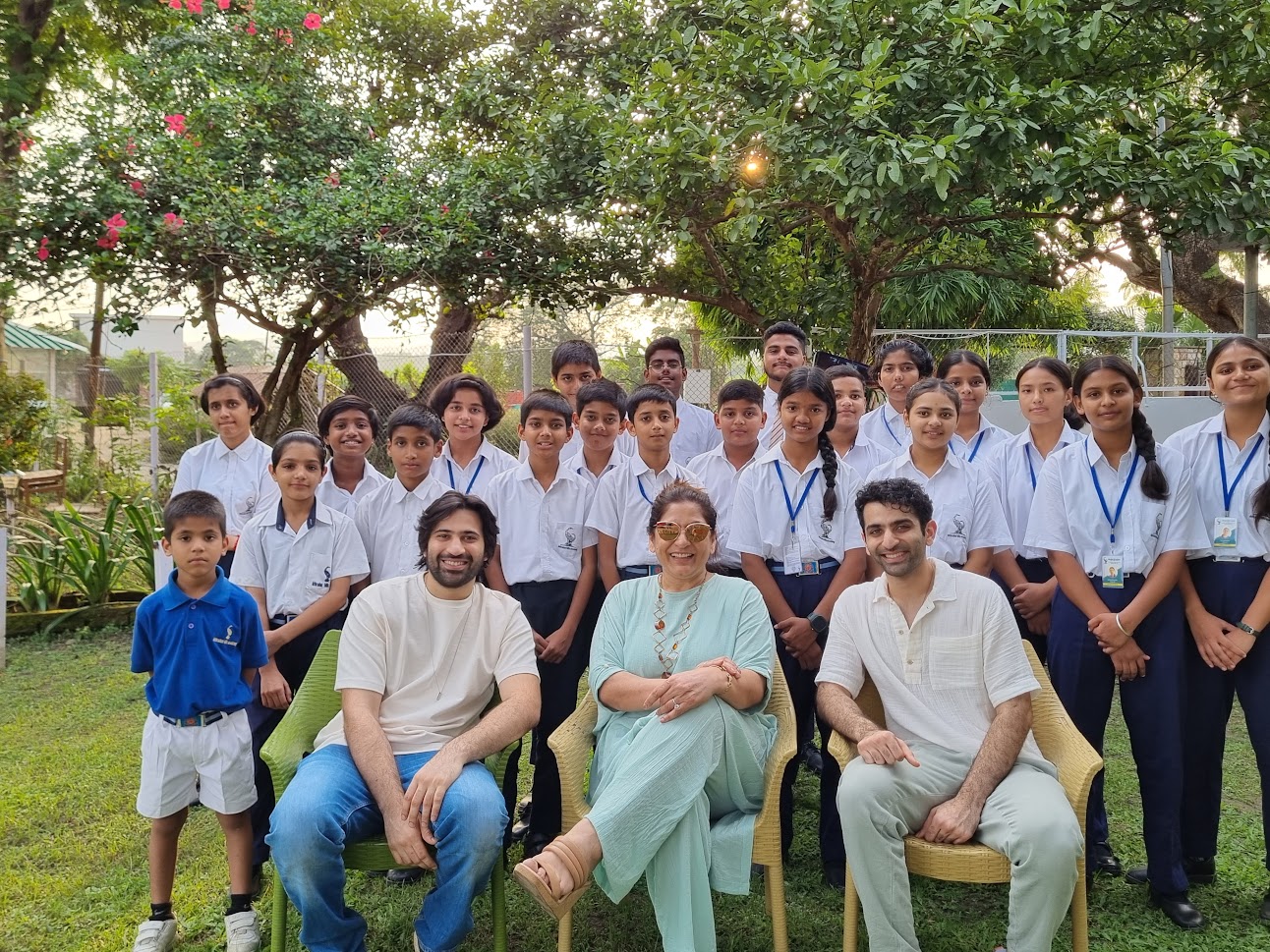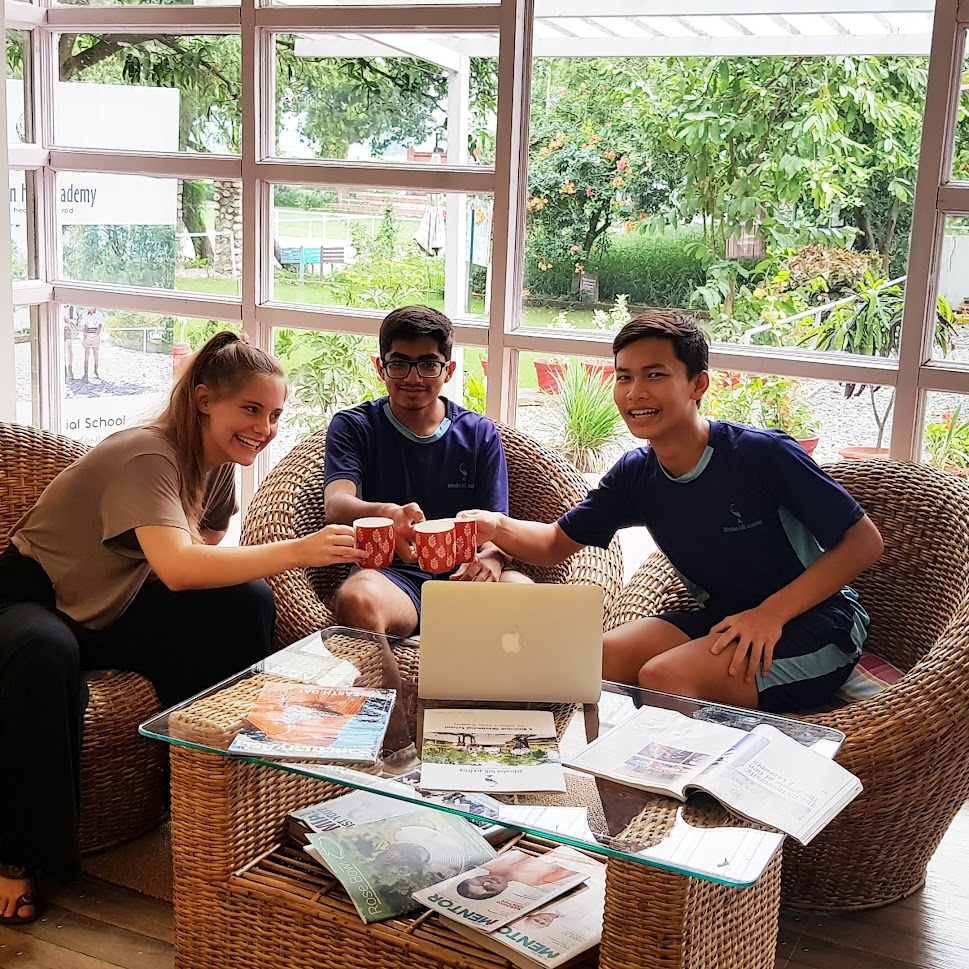Benefits of Personalized Learning Experience in Residential Schools
Personalized learning in residential schools offers significant benefits by catering to the unique needs, strengths, and learning styles of each student. Also in a residential setting, teachers and staff have more time to place individual attention and support on each student, allowing for customized teaching and learning support.

Personalized learning begins with the thought that adaptive learning doesn’t work for everyone. Adaptive learning often fails to provide individual attention to every student. Personalized learning starts with educators establishing a good rapport with each student as a person and as a learner and then supporting them to find out what helps them to learn best.
Collaborative learning is designed specifically to work on improving social learning and enables instructors and schools to get to know every single individual student well. This type of learning plays a key role in personalizing a classroom experience. Expert faculties will carefully analyze the talents and interests of each student that could be invested in and cultivated into their full potential through one-on-one interactions, observations, evaluations, academic background, and conversations with parents.
Benefits of the Personalized Learning Approach
Interactions with students in residential schools help understand their learning patterns better, enabling teachers to create personalized learning strategies. Other benefits of personalized learning include;
Learner Profiles:
Self-regulated learners are also reflective learners, and in order to assist them in becoming reflective about their learning, it is essential to work with students in the development of learner profiles. Actually teaching students to self-assess their strengths, weaknesses, and preferred ways of learning can help students self-regulate, but more importantly, self-advocate for what they need to learn.
Voice and Choice:
In 2015, a study examined how providing students with choices influenced several aspects of their learning, such as their problem-solving strategies, pacing and sequencing of content, preferred formats for showing knowledge, selection of topics and prompts, and their decision to work independently or collaboratively. When meaningful choices are integrated across various aspects of learning and repeated throughout multiple teaching cycles, students gain a sense of emotional security within the learning environment. They are also acknowledged as capable individuals, empowered with the expertise and authority to make important decisions about their own learning journey.
Self-Paced Learning:
Self-paced learning allows students to progress at a speed that best suits their learning preferences. In residential schools, self-paced learning is particularly beneficial. In such an environment, students have the freedom to spend more time on challenging topics while moving quickly through areas they grasp easily. This in turn supports deeper understanding, reduces the pressure associated with traditional rigid timelines, and allows learners to build confidence in their abilities.
Learning is Focused and Personalized:
Personalized learning tailors the educational experience to the unique strengths, needs, and interests of each student, ensuring that it is relevant and engaging. Instead of a one-size-fits-all approach, teachers assess individual learning styles, goals, and progress, crafting strategies to maximize student potential. In residential schools, this approach is particularly effective since teachers and staff have the time and resources to closely observe and guide students accordingly.
Why are residential schools ideal for personalized learning?
Residential schools motivate students to step out of their comfort zones and push their own limits. This encourages students to develop their interpersonal communication skills, which can greatly contribute to their overall academic performance.
Promotes leadership skills:
Leadership skills are cultivated as students are consistently encouraged to strive toward becoming the best version of themselves. In a residential school environment, students are more likely to push beyond their usual boundaries. The immersive setting promotes a mindset of continuous self-improvement, wherein students are motivated to go beyond their comfort zones.
Boosts involvement:
Learning becomes more engaging when the content is relevant and student-centered. Information is more likely to resonate with students and be retained when it connects to their current roles, interests, or projects. In this environment, students not only acquire knowledge but also learn the importance of teamwork and mutual support. Through collaboration, they understand how working together toward shared goals can lead to greater success and personal growth.
Acquisition of Interpersonal Skills:
Students experience growth in both academics and sports, as well as in their interpersonal skills, which are essential for overall development. The structured environment of a residential school fosters strong interpersonal abilities as students learn to interact effectively with peers and teachers. Through positive behavior and collaboration, they gain crucial soft skills such as communication, empathy, and teamwork, all of which contribute to improved performance in various areas.
Raises Academic Performance:
Studies show that a different learning method will exhibit greater results in learning. The new approach enhances learning through the provision of relevant, engaging, actionable, and memorable content. For this reason, the student has a cordial relationship with his work, hence performing better at work.
Instill independence, creativity, and confidence.
In a residential school, each child receives individualized teaching, which fosters a greater sense of freedom and builds their confidence. This personalized approach allows students to explore their potential more fully. As a result, students in residential schools often demonstrate more creativity compared to their peers in day schools. Residential schools are known for nurturing bright minds, as they provide exceptional instruction and diverse learning opportunities that encourage academic and personal growth.
How does DDHA understand and support students’ unique needs?
Dehradun Hills Academy is a CBSE-affiliated boutique residential school, one of the best residential schools in Dehradun. Students are encouraged to go beyond academics and equip themselves with the necessary skills to thrive in the world outside.
Our highly experienced faculties have been serving students for the past 30 years, bringing the best out of them in terms of academics and character development. From the moment a student joins DDHA, a comprehensive understanding of their needs is developed through detailed assessments and continuous observations.
These assessments go beyond academics, taking into account social, emotional, and personal development. Understanding the unique needs of each student and offering them personalized attention has the potential to foster independence and self-reliance. Most importantly, we focus on learning beyond the confines of the four walls, providing a better platform to showcase their inner talents.
Conclusion
In conclusion, a personalized learning experience in a residential school offers students a unique opportunity for growth and self-discovery. By tailoring education to individual needs, strengths, and interests, residential schools can foster a sense of ownership and motivation that drives students toward accomplishing their true potential. Residential schools have always emphasized a close-knit, supportive community where personalized guidance and a holistic approach to education thrive. In the context of online learning, it becomes important to merge the strengths of both systems, offering students the flexibility and access to diverse resources of online learning while maintaining the strong sense of community, structure, and individualized care that residential schools provide. Ultimately, personalized learning in a residential setting prepares students to become well-rounded, confident individuals ready to face the complexities of the world.










